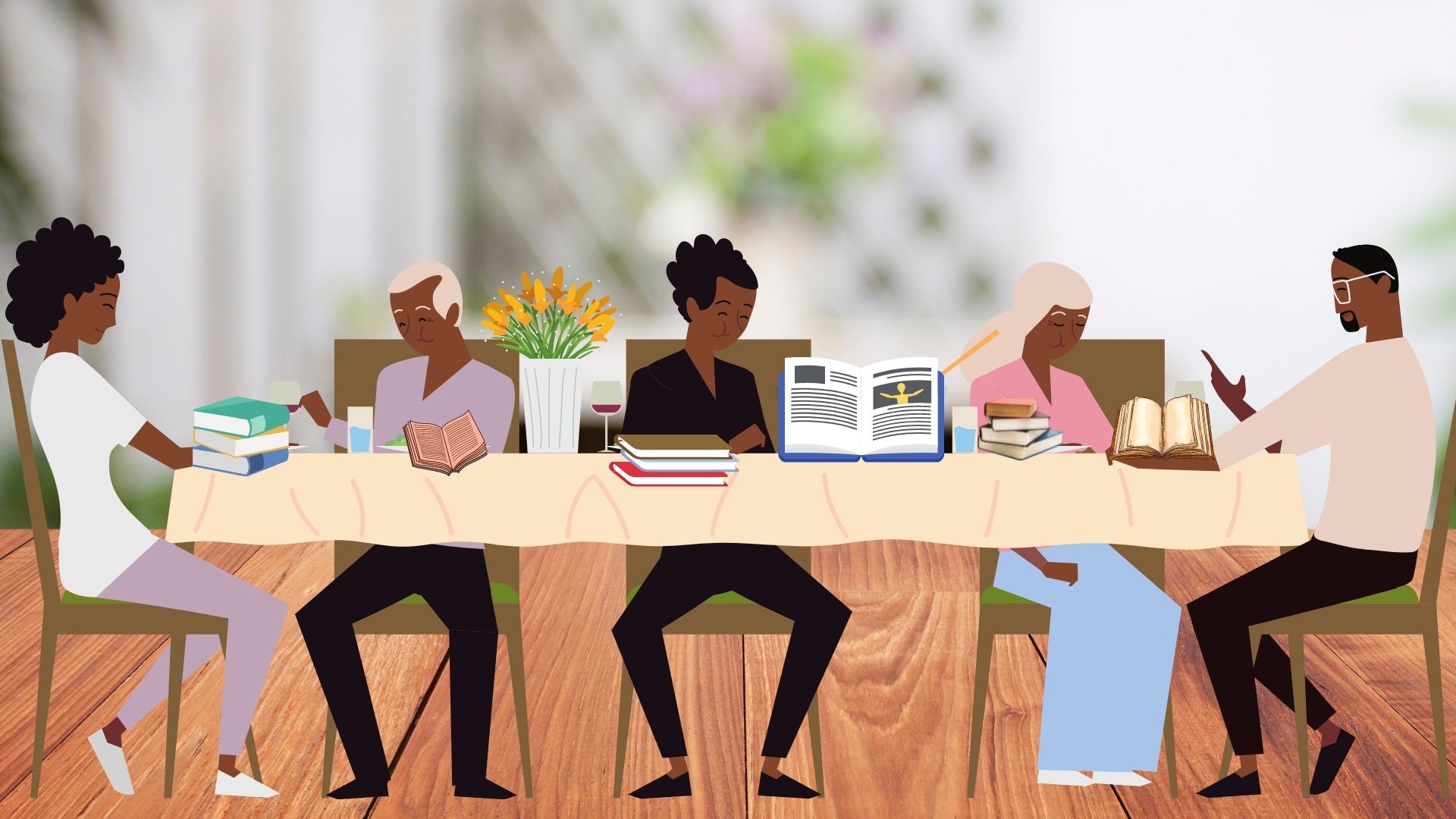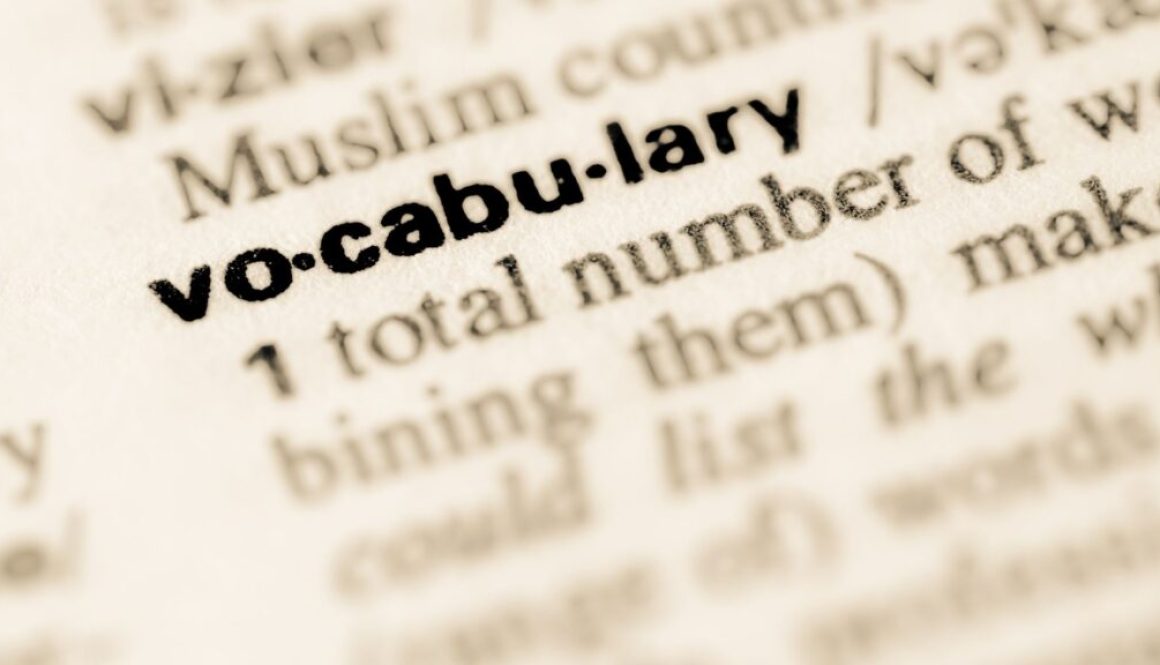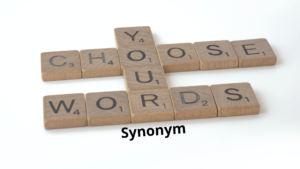5 Ways to Improve Your Vocabulary
Your vocabulary is the first building block of self-expression. To understand is to know the meaning of words. The broader your vocabulary, the more delightful it becomes to read, write and express your thoughts.
Forming A Vocabulary
We learn words from our community. For some, like me, my primary learning community was my family not my school. I don’t remember learning how to read. When I set out to write this post, I called my mom for some answers.
“How old was I when I started reading?” I asked my mom.
“You could always read. I think you came out reading,” she answered and we both had a good laugh. My mother really can’t remember, but we both remember how she built her children’s vocabulary. She gave us weekly vocabulary words.
“When did you start giving out those words?” I asked next.
Again, she doesn’t remember. Those vocabulary words gave me power. With them self-expression, whether verbal or written came easy to me. In school, I was a rock star. Alright, so she didn’t know when she started giving us those words. I could live with that.
“Why did you do it?” I wanted to know.
“They had a list of words-to know in the World Book Encyclopedia. I started learning them,” she told me.
The full explanation actually surprised me. My mother figured her children should learn the words too. Without making any allowances for age, my oldest brother is ten years older than me, she had us work through the list.
Here’s how she did it. Every Sunday evening, my mom called us to the table for our lesson. First, she randomly picked one of us to give the definition of the first word. There wasn’t any sort of shaming or punishing. She just asked. If you didn’t know the answer she asked someone else. If no one knew the answer, she would have someone read the definition given in the World Book Dictionary. Looking up words was rare.
Building Learning Muscles
I do remember having some trouble with words that almost sounded alike or that were somewhat spelled alike or that were of the same length and started with the same letter or words that had almost the same meaning. These are the kinds of issues I had. Didn’t mean I forgot the definitions though.
A Good example:
-
-
- Irascible – easily angered and
- Irate – feeling or characterized by great anger
-
Throughout the week, I had to look up these kinds of words several times to keep them straight in my head.

Okay, I’m rambling. So, after we went through the words, my mother gave us five new words. We took turns looking them up and spelling them out loud. After we had settled the definitions in our brains, to Mom’s satisfaction, the lesson was over. We learned real adult words with her. I remember so many of them. Here are a few:
- Acumen
- Astute
- Eschew
- Exacerbate
- Facile
- Faultless
- Mandible
- Masticate
- Mundane
- Ornate
- Prestidigitator
- Pristine
My mother had a brilliant idea. It was so wonderful. Now, I can’t say what my siblings thought about our lessons, but I loved them. While I can’t recall when those lessons started, I do remember them from third grade to eighth. After eighth grade I went off to boarding school. End of lessons.
Vocabulary: What is it Good For?
An expansive vocabular is crucial to heighten your reading comprehension. It’s what makes reading so much fun. When reading feels like a treat, you’ll never complain about having to read. Many of the students I’ve worked with find reading a chore. My number one recommendation to them is… build your vocabulary. For the struggling writers out there, I offer ways to enhance your skills through vocabulary building.
Tips on How to Improve Your Vocabulary
1. First read. Read the best works. (See indispensable books)
Read everything. Study how your favorite authors use words. Learn what’s unique about how they structure their sentences. Do they write short sentences and easy words like Hemingway and C.C. Lewis or do they use long sentences like Charles Dickens or Chaim Potok? You can also study how they describe things. Do they have long, endless descriptions like Dean Koontz?
Reading for writing is a two step process.
- First, read for enjoyment.
- Next, reread to learn about writing.
2. Look up the words you don’t know.
These days, it’s much easier to look up words you don’t know. Your phone is a dictionary. Still, when I mentor young writers, they resist looking up words. Using a dictionary in conjunction with a thesaurus is a sure way to build your vocabulary.
I’ve seen some students struggle with words because they have truly limited vocabularies. If this is your issue, find alternative ways to build your vocabulary. Perhaps you might listen to some audiobooks on vocabulary building.
For those committed to broadening their vocabularies follow this plan:
- Look up unfamiliar words.
- Write out the definition by hand (that means using old fashion style pen and paper)
- Write down at least three synonyms (try to choose synonyms you know)
- Study the example sentences. Write them down too.
- Write your own sentences using the word. (At least three sentences)
- Work the word into your daily conversation for at least three days.
This is a sure fire way to permanently add new words to your vocabulary.
3. Study words in context
Whenever you encounter unfamiliar words take note of how and where they are used. Paying attention to how words are used is as important as looking up their definition. The more you learn about how, when and where a word is used, the sooner you’ll master it.
4. Pause to write your own sentence(s)
This one is tortuous for those with monumentally tiny vocabularies. But persistence can drag, even if kicking and screaming, the unwitting writer into the powerhouse of words.
5. Practice using newly acquired words when you speak and write.
Find ways to integrate your new word into your daily speech. Every time you use an unfamiliar word, it reduces your anxiety and eventually acquiring new words will get easier.
For more on vocabulary see the trouble with synonyms




